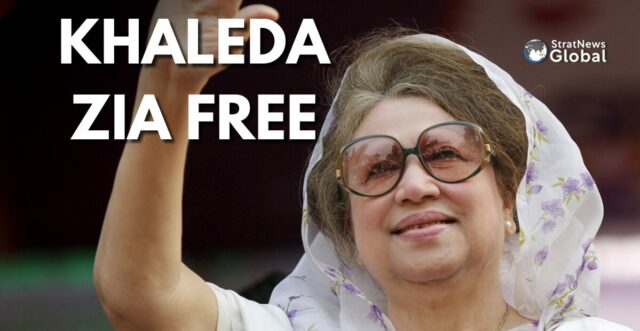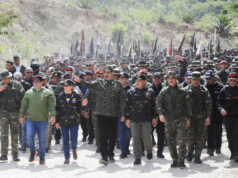Days before her 79th birthday, Bangladesh’s first female Prime Minister, Khaleda Zia, has been freed from house arrest. This decision follows anti-government protests that ousted her rival, Sheikh Hasina, from power.
Presidential Order for Release
President Mohammed Shahabuddin ordered Khaleda Zia’s immediate release late on Monday. This decision came after discussions with politicians and the army regarding the formation of an interim government. Earlier in the day, Hasina fled to India after resigning.
Khaleda Zia’s Health Concerns
Khaleda Zia, born on 15 August 1945, suffers from liver disease, diabetes, and heart problems. Due to her health issues, she has largely stayed away from active politics in recent years.
From Shy Housewife to Political Leader
Popularly known as Khaleda, she was once shy and dedicated to raising her two sons. Her life changed dramatically when her husband, military leader and then-president Ziaur Rahman, was assassinated in a failed army coup in 1981. This event propelled her into politics. Three years later, she became the head of her husband’s conservative Bangladesh Nationalist Party (BNP). She promised to fulfil his vision of “liberating Bangladesh from poverty and economic backwardness.”
Alliance and Rivalry with Sheikh Hasina
Khaleda Zia initially joined forces with Sheikh Hasina, the daughter of Bangladesh’s founding father and leader of the Awami League party. Together, they led a popular uprising for democracy that toppled military ruler Hossain Mohammad Ershad in 1990. However, their alliance was short-lived. In 1991, Bangladesh held its first free election, where Khaleda emerged victorious over Hasina, gaining support from Islamic political allies. This victory made her Bangladesh’s first female prime minister and the second woman to lead a democratic government in a predominantly Muslim nation, following Pakistan’s Benazir Bhutto.
Achievements and Controversies
As Prime Minister, Khaleda Zia shifted Bangladesh from a presidential to a parliamentary system, emphasising the prime minister’s role. She also promoted foreign investment and made primary education compulsory and free. Despite losing to Hasina in the 1996 elections, Khaleda returned to power in 2001. However, her second term saw the rise of Islamist militants and allegations of corruption. A grenade attack on a rally addressed by Hasina in 2004 killed over 20 people and injured more than 500. Khaleda’s government and its Islamic allies were widely blamed. Her eldest son was later tried in absentia and sentenced to life for the attack. The BNP insisted the charges were fabricated.
Despite later efforts to clamp down on Islamist radical groups, Khaleda’s second term ended in 2006 amid political instability and violence, leading to an army-backed interim government. Both Khaleda and Hasina were jailed for about a year on corruption and abuse of power charges before being released ahead of the 2008 general election.
Continued Political Turmoil
Although the BNP boycotted the 2008 election, the feud between Khaleda and Hasina, leading to them being dubbed “the battling Begums,” continued to shape Bangladeshi politics. The tension between their parties often led to strikes, violence, and deaths, hindering economic development in the poverty-stricken country of nearly 170 million people.
In 2018, Khaleda, her eldest son, and aides were convicted of embezzling around $250,000 in foreign donations meant for an orphanage trust established during her tenure as prime minister. She claimed the charges were politically motivated to sideline her and her family. Khaleda was jailed but released in March 2020 on humanitarian grounds due to her deteriorating health. Since then, she has remained under house arrest.
With Inputs from Reuters
Research Associate at StratNewsGlobal, A keen observer of #China and Foreign Affairs. Writer, Weibo Trends, Analyst.
Twitter: @resham_sng





